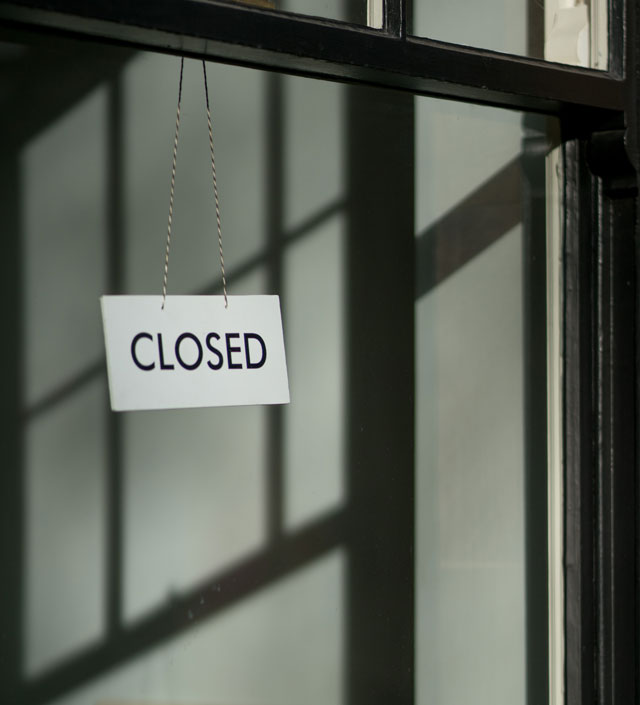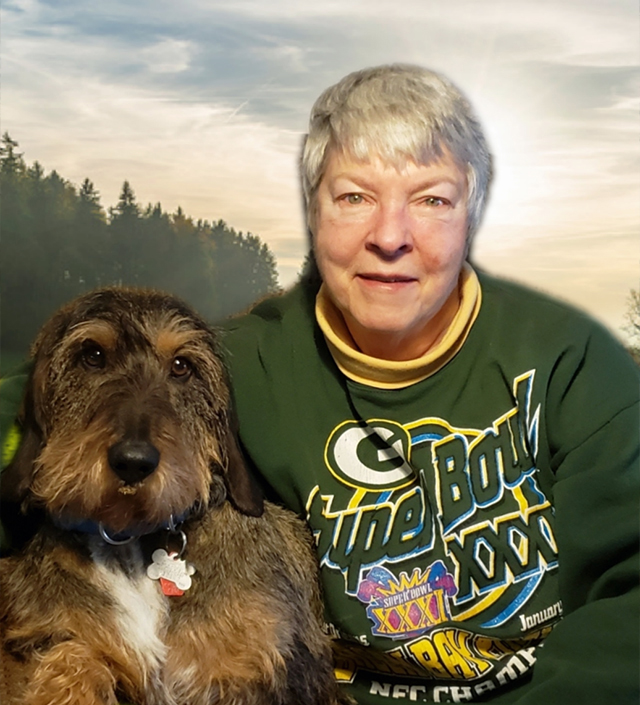Eight years ago, my dad was the victim of medical negligence. The nurse and doctor in charge of his care were over worked, understaffed and unsupported. It created a situation where a lapse in judgement occurred. A lapse that resulted in a brain injury that went untreated and undiagnosed for eight months. That brain injury led to an induced coma, a stroke and a life forever changed. Four years of never-ending recovery followed, with his body giving out at the age of 74.
At the time of my dad’s injury, I was a chef, not an advisor. But what I learned through the situation encouraged me to eventually shift career paths and focus my financial practice on health care professionals.
My sister called me to inform me of my dad’s situation: He had gone with my mom to the emergency department of their local hospital, because he was very lightheaded that evening, and while there he had fallen out of bed and hit his head.
The nurse had failed to engage the guardrails on the bed, although my mom had stressed to her that my dad was lightheaded and had near fainted. My parents weren’t sure if his lightheadedness was related to his Type 2 diabetes and high blood pressure, or if it was something more serious. My mom had stepped out of the room for a second, to ask the nurse for assistance, and that’s when he fell.
After he was helped back into bed, my father told the doctor that he hit his head. The medical team finally secured him into the bed. They checked for concussion and ran some tests, but did not perform further follow-up, breaking with the hospital’s policy.
Eight months later, he was back in the hospital, after another fainting spell. At that time, MRI scans showed my dad had a brain bleed in the area where he hit his head during his previous hospital visit. He was immediately put into a coma and had emergency surgery to fix the bleeding. While still in a coma, he suffered a stroke and fits of seizures. He ended up with mild paralysis on his left side and was confined to a wheelchair.
One of the most difficult things was hearing how my mom, overcome with guilt, blamed herself. If she only knew more, she thought. But it was not her fault; at the time she did not know about fall risk protocol in an emergency department. She was unaware of the follow-up procedure if someone does fall. These were areas missed by the professionals who oversaw my dad’s care. But words could not make my mom feel any better.
Basic Research
I felt as though there was more to this, there had to be a better answer. Chefs are weird creatures, meticulous, detail oriented and when fixated on an issue, we home in on it like a laser. I started doing the research. I wanted to understand how hospital accidents happen. When they are most likely to occur. How to prevent this and if there was something I could do to help.
I started with the basics. There is tons of research on mental health stress, financial health and physical health interrelated, including this study conducted by the Ohio State University School of Nursing. When focusing on medical professionals, things started to click. Initial searches involved how financial illiterate medical professionals are. I learned that lack of financial literacy can be a primary driver of burnout. That there is a deficiency in resources and materials specific for them.
In the medical community, the doctor is in the center, and everything revolved around them. Yet through the endless research, I saw the impact nurses had on patient outcomes.
Additional Reading: Caregiving Is This 74-Year-Old Advisor’s Lifelong Calling
I learned that there is a severe lack of wellness programs for medical professionals. In my own research, it seems there is a failure to link physical, mental and financial health — and that no one wanted to fully admit the problem. Further, the wellness programs offered to medical professionals largely disregard financial education, which is more important than ever.
The average doctor has roughly $200,000 in medical school debt. The average physical assistant has roughly $60,000 in graduate school debt. And the average nurse has roughly $55,000 in nursing school debt. Those numbers are going up. Yes, these are well paying professions, but it takes a few years after school before the income catches up. There is a resource gap regarding how to effectively navigate that gap.
Medical professionals and chefs have a lot in common. Cooking is not a matter of life or death. Yet, in both areas, there is pressure to push beyond your natural limits. Emotionally and physically. Having firsthand experience of working an 80-hour work week on your feet, moving consistently, it takes a toll. The drag, the mental fog, menial tasks feel like mountain climbing. This is where system failure occurs, we understand and know the problem, yet it does not affect us personally, so we keep it at a distance. This is everyone’s fault and no one’s fault all at the same time, a most frustrating conclusion.
Legal Proceedings
During the time that I was conducting this research, depositions began between my mom and dad (he was still alive) and the hospital. Before heading to trial, mediation was attempted.
The hospital initially refused to accept responsibility or liability, but offered to settle for a very small amount. Although my parents had insurance and a financial strategy, they were not prepared for the big expenses of the life-changing nature of my dad’s injury. He became permanently wheelchair bound, somewhat cognitively impaired, and could no longer care for himself. Together, my parents decided that he should receive care at home.
Ultimately, my family wanted the hospital to accept responsibility and liability — to admit they made a mistake and not say that a mistake just happened. After turning down the settlement, the hospital’s stance shifted. They accepted responsibility, but not liability. It makes no sense to me either.
The doctor was spared from testimony; the nurse was not. She accepted that she had a lapse in judgement, that this lapse was brought on by being short staffed. Moreover, she intimated, though did not say explicitly, that her workload as of late had been higher than usual. She also admitted that she was working more to earn overtime. She also admitted that outside factors impacted her judgement. Procedure should have been followed, including a CAT scan, monitoring and follow-up.
A Broken Heart
When I read this testimony, my heart broke — not just for my dad but also for the nurse. Here was a dedicated professional put into an untenable situation. You do not go into the medical field looking to hurt people. For many medical professionals, their biggest fear is harming a patient. It is a huge talking point that comes up regularly in conversation. That the stress and squeeze of the career have many in a state of dread that they may inadvertently hurt a patient.
This lawsuit started out as a malpractice suit and ended up as a wrongful-death suit. After four years of back and forth, my dad’s unnecessary death settled the matter. In the end, it was probably for the best. The toll this had taken on my mom was evident. There was a time when my siblings felt we might lose both parents. My dad died in July 2016. During all of this, my exit plan to get out of the restaurant business was formed.
Taking a Leap
It was always my intention to work with nurses and physician assistants because of what happened with my dad. I want help nurses alleviate financial stress because their lives are stressful enough. They have the most direct impact on the care of patients. Further, nurses and PAs can be overlooked and undervalued in the health care system. I do not want anyone to have to go through what my dad, family and the nurse went through.
In 2019, I took the leap and started working with Concord Wealth Management of Penn Mutual agency system. Like many new advisors, the learning curve was steep, but I started to figure out how best to get in front of folks. Then 2020 happened. Starting a new business during a pandemic was rough. Yet, having years of restaurant life under my belt made me resilient to the challenge.
With the world paused, it made me think about the way I wanted my practice to operate — what I liked about financial services, what I did not like and how it will evolve.
Medical professionals are asked to work a lot. They do this for a variety of reasons: Career pressure, lifestyle creep and student loans. Yet it has been cited that when medical professionals have a firm grasp on holistic health planning, (mental, physically, financial), they are able to give better care to their patients.
I also identified a pattern while conducting my own research. While interviewing and surveying roughly 150 nurses, I observed an overall lack of confidence about financial wellness. For many, the only strategy is, “I put money in my 401(k)” with the hope that is enough.”
It was surprising to hear that many nurses seek side hustles or work two jobs. In some pockets of the nursing community, the Financially Independent Retire Early (FIRE) philosophy is prevalent. In these conversations, all these actions were underscored by financial insecurity and illiteracy. Other common themes revolved around feeling minimized at work, being in a toxic work environment, and not having sufficient access to financial education.
The nurses I spoke with admitted they want to know more and said that having more financial knowledge would help their level of care. These conversations have shaped my approach towards providing financial advice. Having lived in a high stress, high bandwidth job, I know this leaves little emotional capacity to focus or deal with financial topics. There is also little time to think about managing cash flow, budgeting and paying down student loan debt. Many of the prospects I speak with say they find it strange that I ask about their feelings about money rather than money itself.
Serving People
The parallels between the restaurant business and financial services are strong. The product is not food or money advice — it is people. Serving people. After seeing what my dad went through and making the conscious decision to leave a successful restaurant career, my financial practice has a specific purpose. For every nurse, PA, or doctor that I help, their patients ultimately benefit.
In my restaurant life, I also learned the limits of giving good service. Over-seating people in a restaurant for the sake of a buck could cost you more in the long run. To service 300 to 400 hundred clients seems overwhelming. With that in mind, my financial services “restaurant” (or whatever metaphor you choose) has only 200 seats. This is intentional, for my clients’ benefit and my own sanity.
In the financial advisory business there is a freedom of choice to work with those you want to. That should be celebrated and supported more.
Will Salazar is a Financial Professional with Concord Wealth Management located in Wakefield, MA. He is also a former chef and co-author of “The Smoke Shop Backyard BBQ” cookbook. Will can be reached at wsalazar@htk.com. You can learn more about him at www.beahappynurse.com. 3661320RH_AUG23







